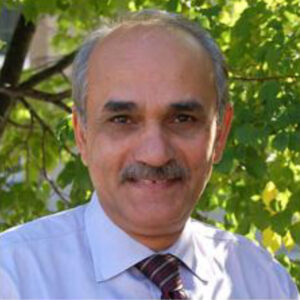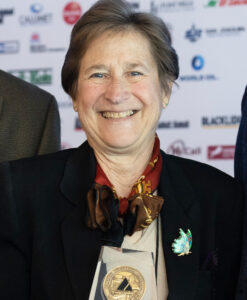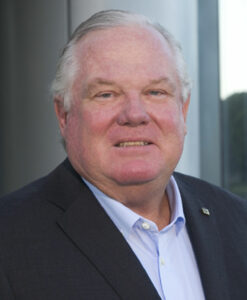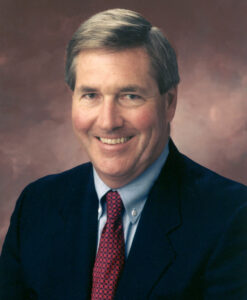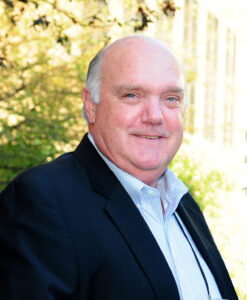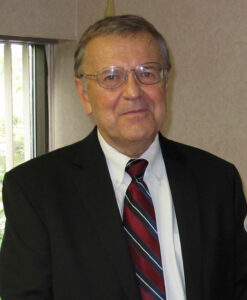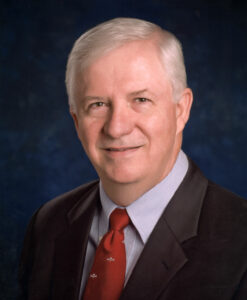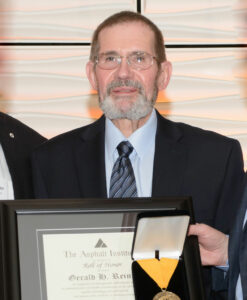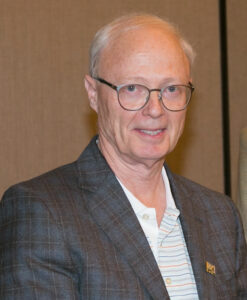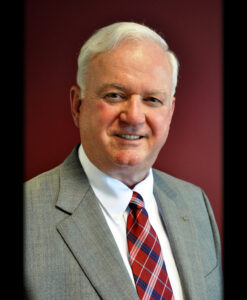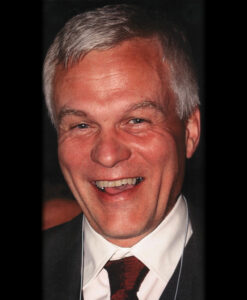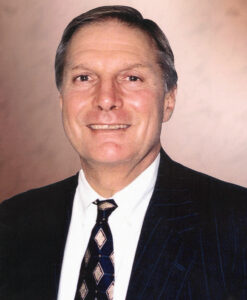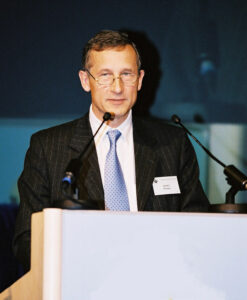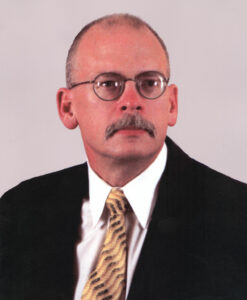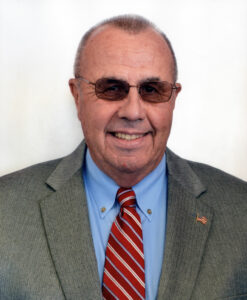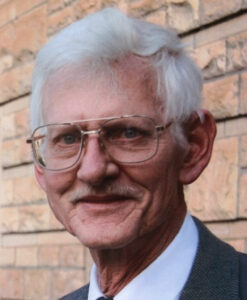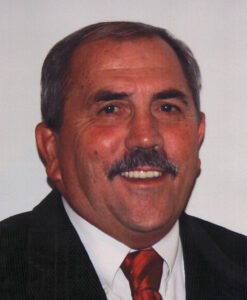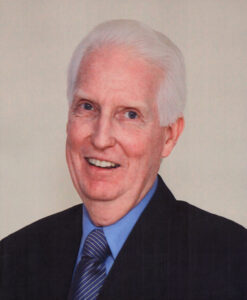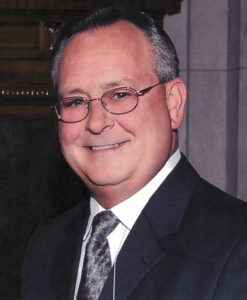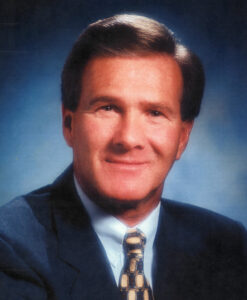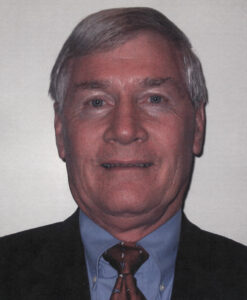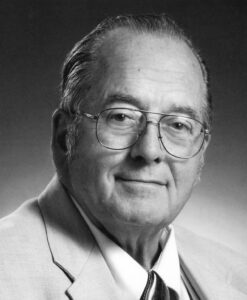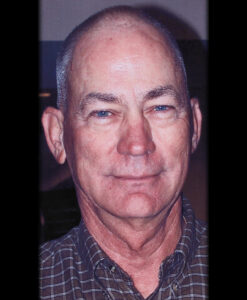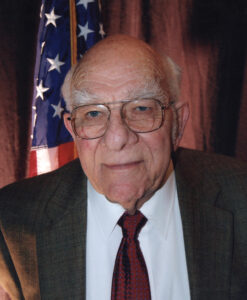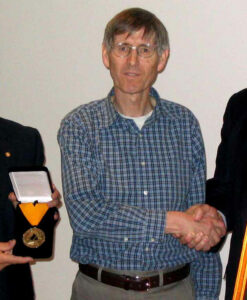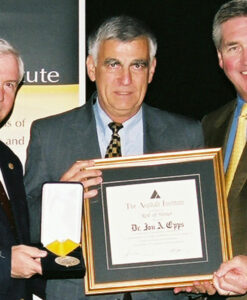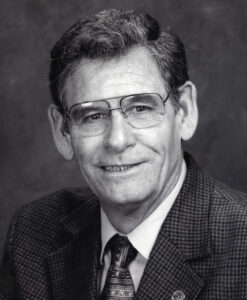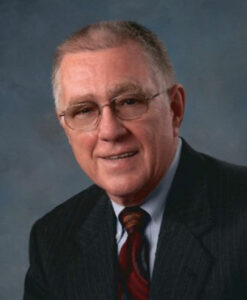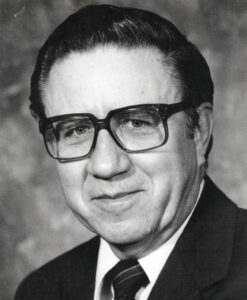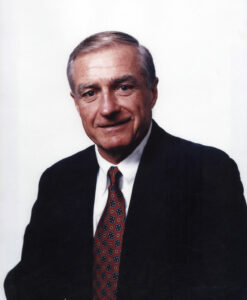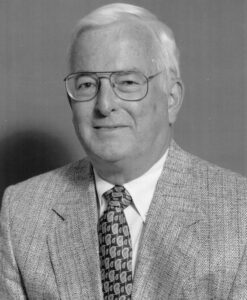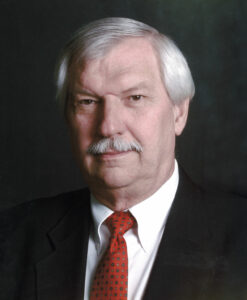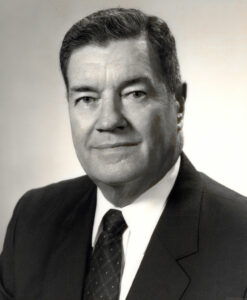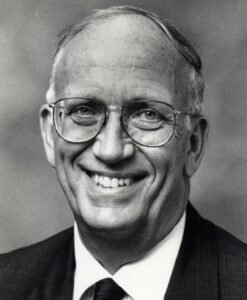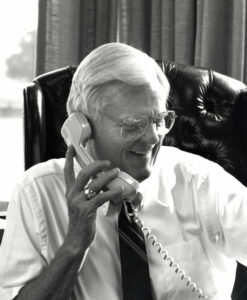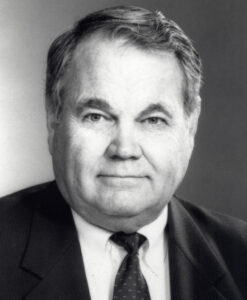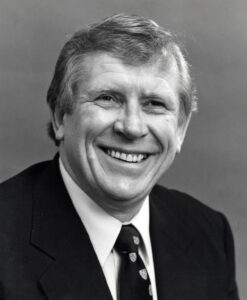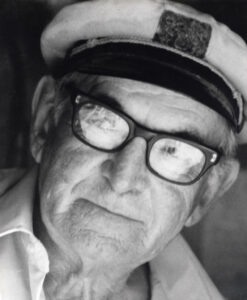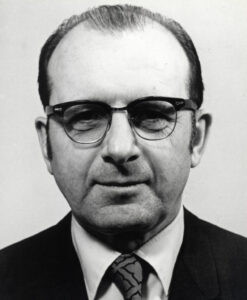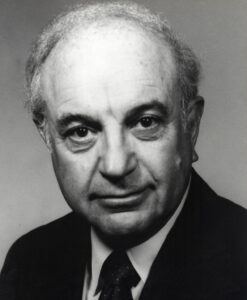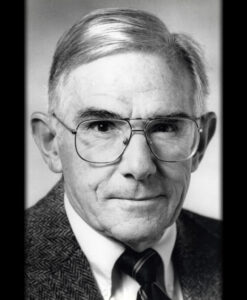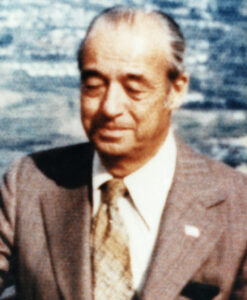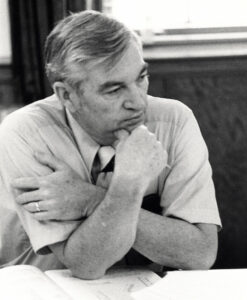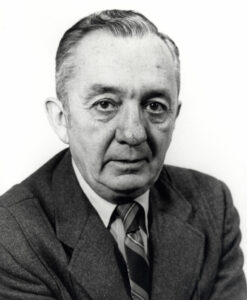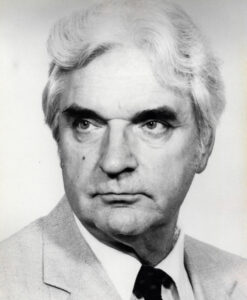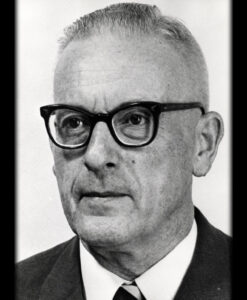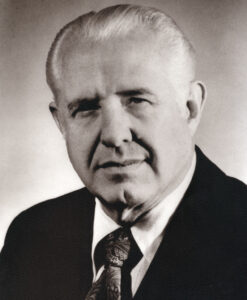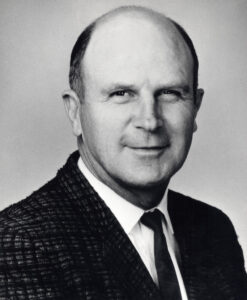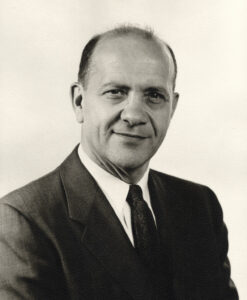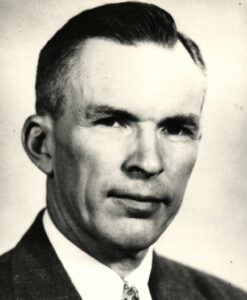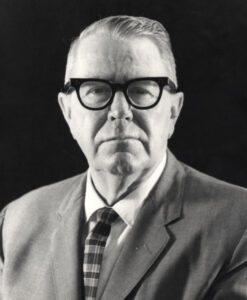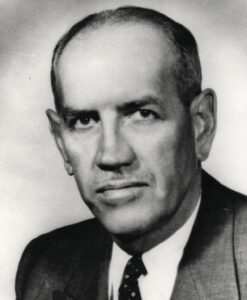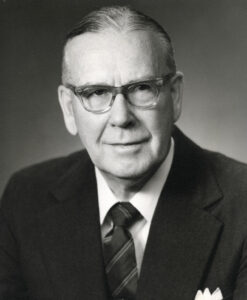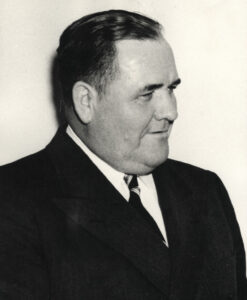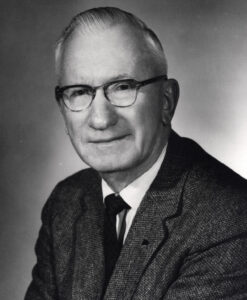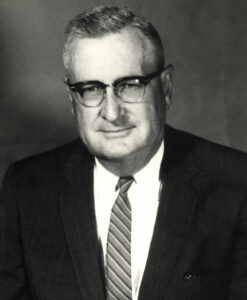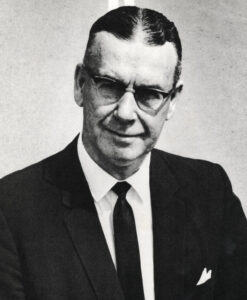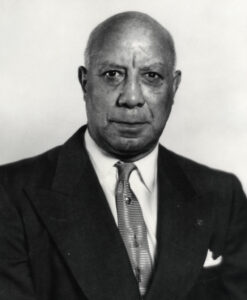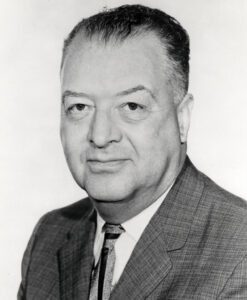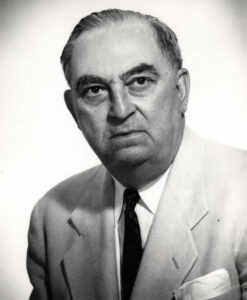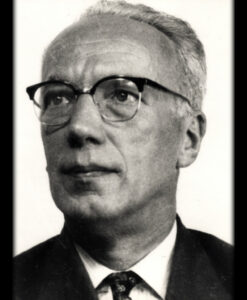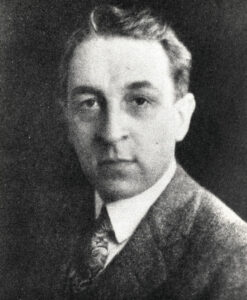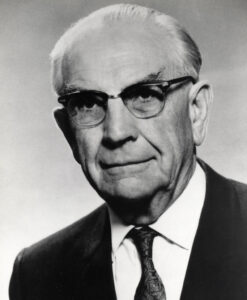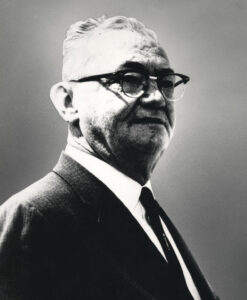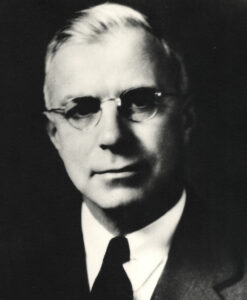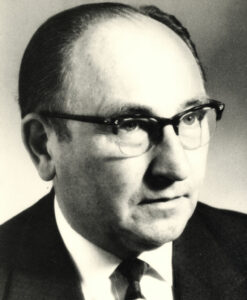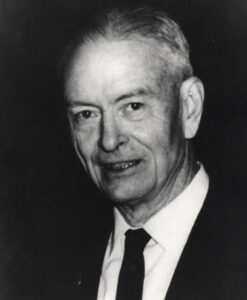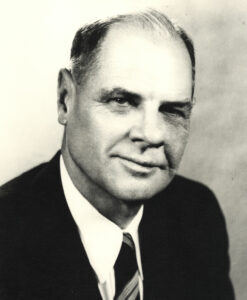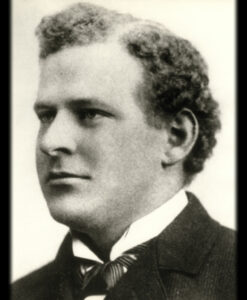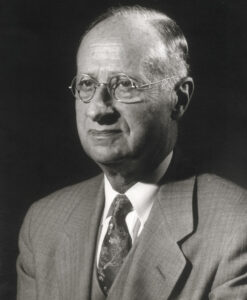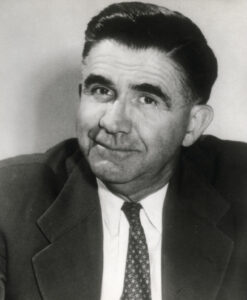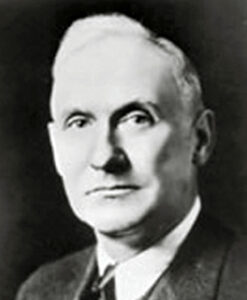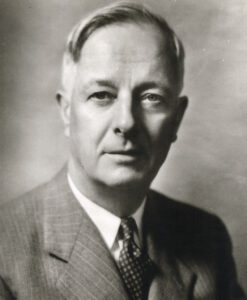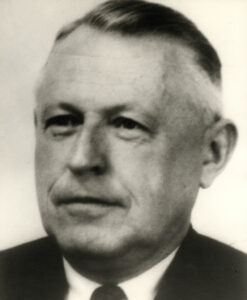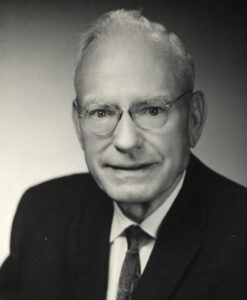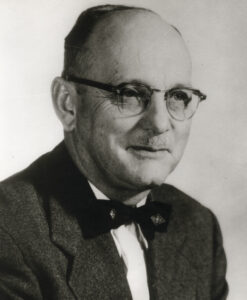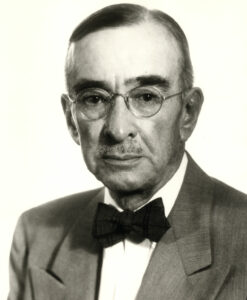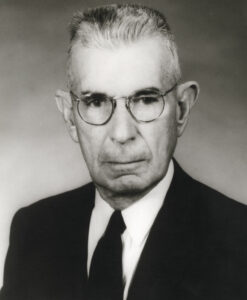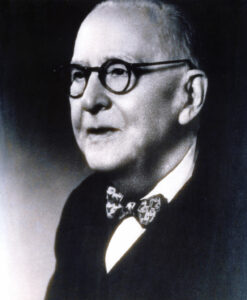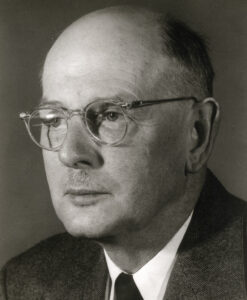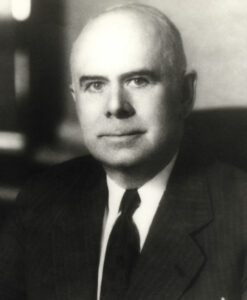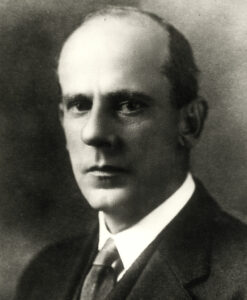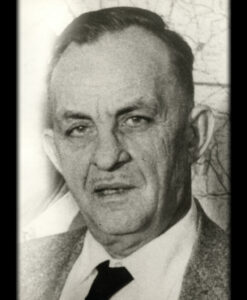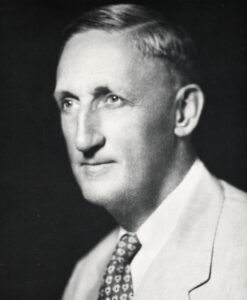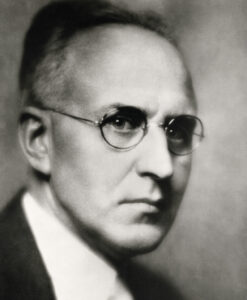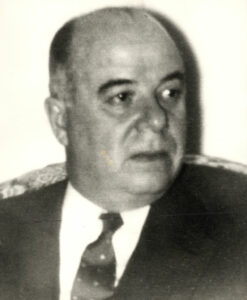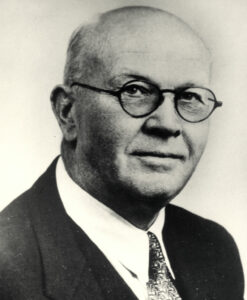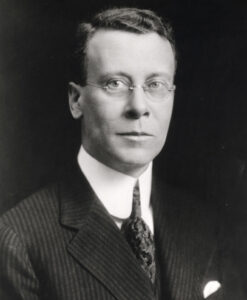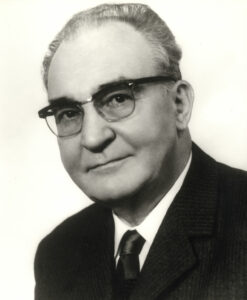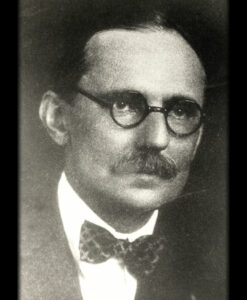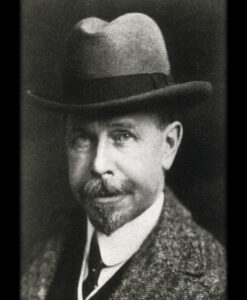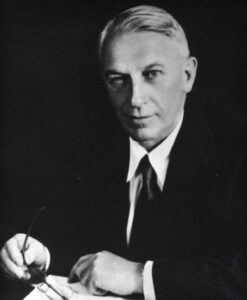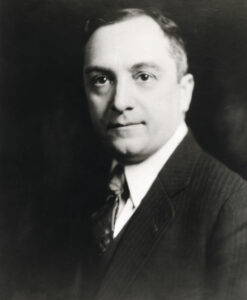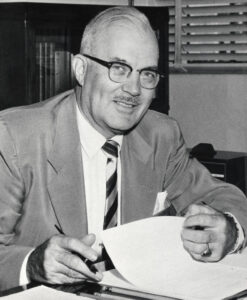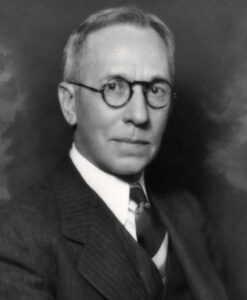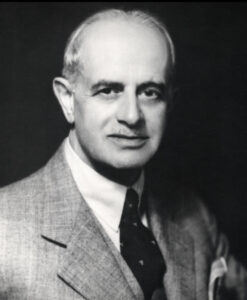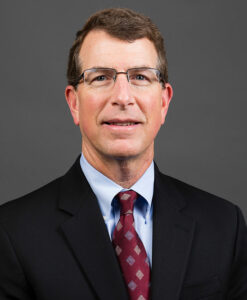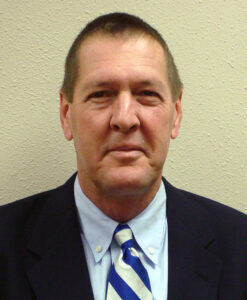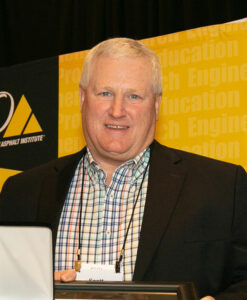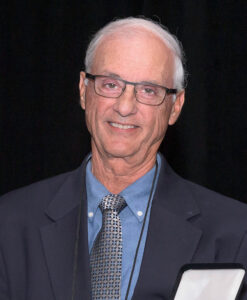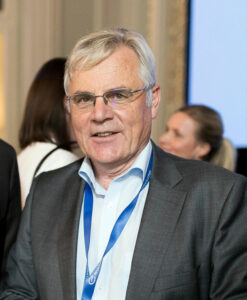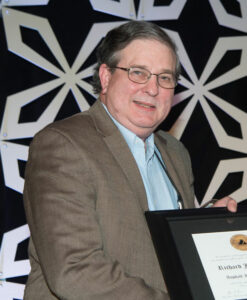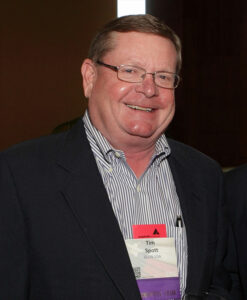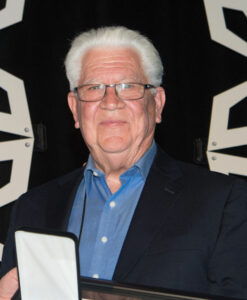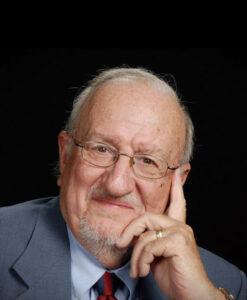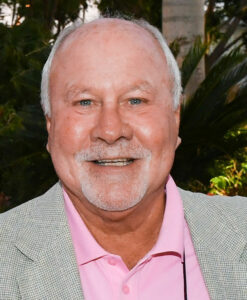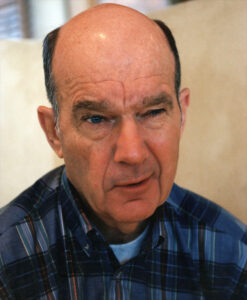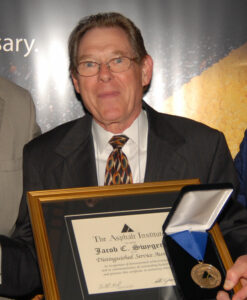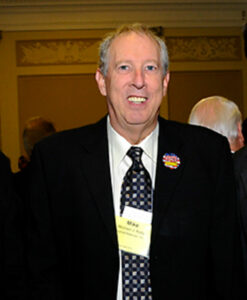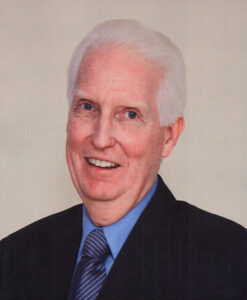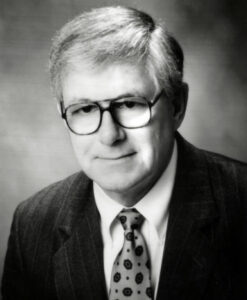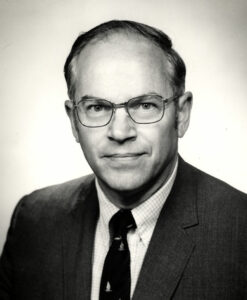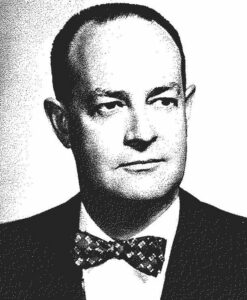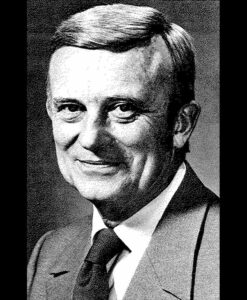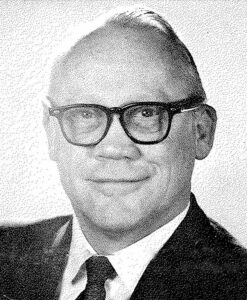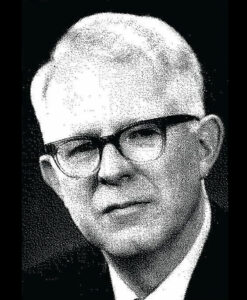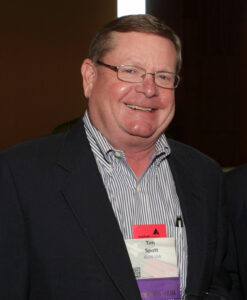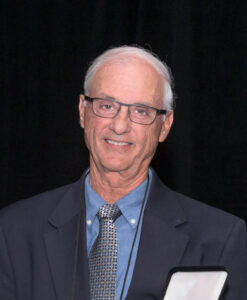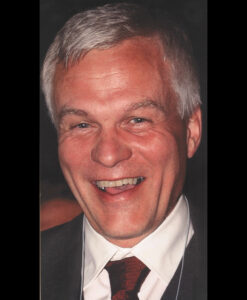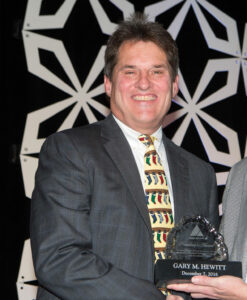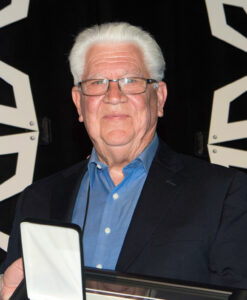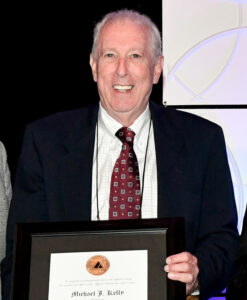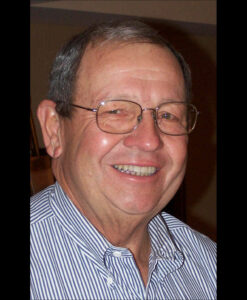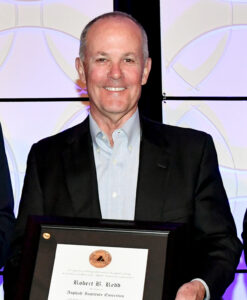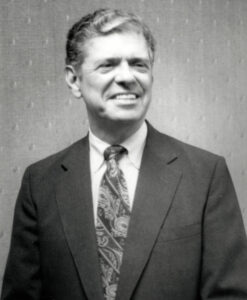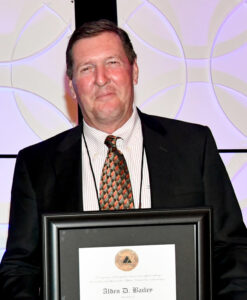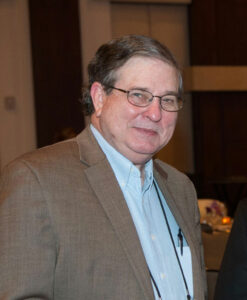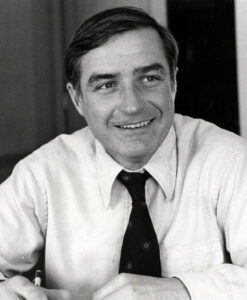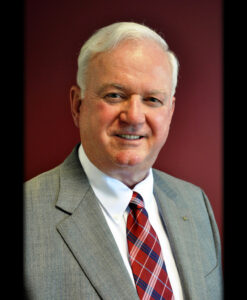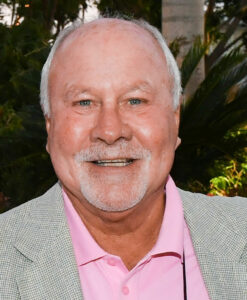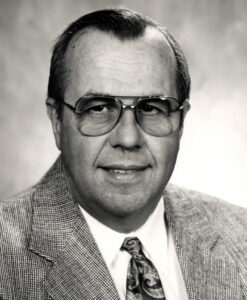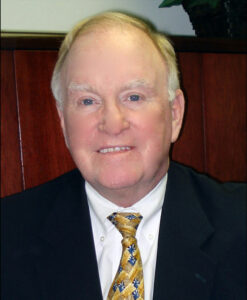Roll of Honor
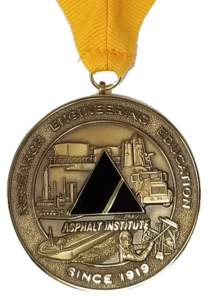
Established in 1965 the Roll of Honor is the highest level of recognition conferred by the Asphalt Institute. Individuals selected for award to the Institute’s Roll of Honor have contributed tremendously to the asphalt industry through either sustained technical achievement or through the substantial contribution of leadership. Roll of Honor status is typically granted as a career capstone event for the recipient.
The inauguration of the Asphalt Institute’s Roll of Honor in 1965 marked the first step in fulfillment of a long-felt need to record, in continuing approbation, the names of those whose contributions to the asphalt industry have been outstanding and proven by time.
Since then and in each succeeding year, the names of persons to be honored by election to the Roll of Honor are selected on a merit basis encompassing the careers of both living and deceased nominees. The Institute’s Personnel Advisory Committee is responsible for oversight of this program to honor individuals annually.
The announcement of the names of those selected is made at Asphalt Institute annual meetings. As of 2004, the Institute awards each Roll of Honor recipient the Asphalt Institute award medallion – a polished brass medallion with engraved AI logo and images of the liquid asphalt supply industry.
Dr. Jean-Pascal Planche has a chemical engineering degree from the Chemistry National School of Mulhouse, France, and a PhD in Macromolecular Science from the University of Lyon, France. He has been with the Western Research Institute (WRI) since 2010, serving first as Senior VP of Asphalt and Petroleum Technologies and…
Read More
Dr. Bahia earned his PhD in 1991 at Pennsylvania State University during the Strategic Highway Research Program (SHRP) and continued to work as Research Associate and Research Assistant Professor with Dr. Dave Anderson completing research that led to the development of the Superpave Performance-Graded (PG) Asphalt Binder Specification. He is…
Read More
Bob serves as the Technical Manager for HF Sinclair, a position he has held for the past 25 years through various company name changes, beginning with Navajo Asphalt in 1998. From 1995-1998 he directed the South Central Superpave Center as Program Manager, simultaneously directing the asphalt research program at the…
Read More
Dr. Rita Leahy has been involved in the transportation industry on asphalt pavement-related issues for over 30 years at the national, regional, and state levels. This includes engagements as a Principal Engineer with the Asphalt Institute, Senior Staff Engineer with the Strategic Highway Research Program (SHRP), Civil Engineering Faculty at…
Read More
Baxter obtained his Bachelor of Science in Engineering Technology from Mississippi State University and began his career with Ergon Asphalt & Emulsions, Inc. in 1982. He began as a Sales Engineer, rising to the position of President in January 2011. Additionally, Baxter was recently named as Executive VP of Ergon's…
Read More
Bill graduated from Hampden‐Sydney College and thereafter joined Shell Oil Company as a Refined Product sales representative in Philadelphia, PA. Following approximately four years with Shell, Bill joined Fuel Oil & Equipment Co, Inc. to lead the continued expansion of the company started by his father. The expansion of Fuel…
Read More
Tom Bertsch graduated from North Park College in Chicago in 1977 with a B.S. in accounting. He earned his M.S. in management from the Northwestern University Kellogg School of Management in 1979. A long-time volunteer with many industry-related organizations, his leading professional affiliation is with the Asphalt Institute which included…
Read More
Mike Acott earned a Bachelor of Science degree in Physics from the University of East Anglia, in England in 1971. He earned a Master of Science in Engineering from the University of Natal, South Africa in 1980. Mike’s initial position was with the Sand and Gravel Association in the UK…
Read More
John Bukowski graduated in 1973 from the University of Pittsburgh with a civil engineering degree. After graduation, he joined the United States Marine Corps. During his six years, he served as an engineering operations training officer, battalion adjutant, legal officer and series commander with a final rank of Captain. In…
Read More
Ralph Shirts earned a Bachelor of Science degree in Civil Engineering from Union College in Schenectady, New York in 1979. A scholar, he graduated Magna Cum Laude with Departmental Honors. He enrolled in the Reserve Officer Training Corps while in college and was commissioned a second lieutenant in the Army’s…
Read More
Since 2003 Gerald (Gerry) Reinke has served on two of the Asphalt Institute’s key committees – the Technical Advisory Committee (TAC) and Health, Safety, and Environment (HS&E) Committee. In addition to serving as a committee member, he served as chairman of the HS&E Committee from 2005-2007 and TAC (2010-present). Gerry…
Read More
Vice President, Research & Development for Heritage Research Group, Tony has been involved with AI’s HS&E issues since the 1980’s. Mentored by Fred Fehsenfeld Sr., Tony has adopted the philosophy that the industry needs to know and not bury its head in the sand. He, like Fred, believes that if…
Read More
Dr. Arp holds a Bachelor of Chemical Engineering degree from Georgia Institute of Technology and several designations from the University of North Carolina including a Master of Science in Environmental Engineering, a Master of Business Administration and a Doctor of Philosophy in Environmental Sciences and Engineering. His work accomplishments while…
Read More
Martin Carlson joined Nynas in 1975 as a process engineer and is currently the Director of Business Development and a member of the Nynas AB Executive Committee. Martin undertook a variety of roles and responsibilities within Nynas including being an Executive Committee Nynas representative for Eurobitume from 1994 – 2011…
Read More
William H. (Bill) Haverland, a veteran of over 42 years in the oil business, currently works with Associated Asphalt and previously as the long-time Asphalt Marketing Manager for ConocoPhillips. Bill's involvement with the Asphalt Institute spans his 23 years in the asphalt industry. He became the first person in contemporary…
Read More
Philippe graduated in organic chemistry at the University of Louvain in Belgium and started his early career in South Africa, where he worked in both the steel and chemical industries before joining BP in Cape Town, in 1981. Subsequent positions with BP, took him to the UK, the Grand Duchy…
Read More
1952 – 2009 Mike began his career with United Refining Company in November 1982 serving in the capacity of Special Projects Accountant. Later, as Vice President – Asphalt Marketing for United, he built strong, trusting relationships throughout the industry with customers and suppliers alike. Mike’s service with the Asphalt Institute…
Read More
Tom worked with Standard Oil of Indiana and AMOCO for 38 years. Tom retired from BP Asphalt following the merger with AMOCO. Throughout his involvement with the asphalt industry, Tom served in the most demanding positions with the Asphalt Institute. His leadership was essential during many defining moments for the…
Read More
Ray Robertson is a native of Missouri. He received a Bachelor of Science in Chemistry from Central Missouri State College in 1962. He worked for Petrolite Corporation in Webster Groves, Missouri in the demulsification organic synthesis group until going to Colorado State University in 1969. He received a Master of…
Read More
Carlos Rosenberger is best known for his expert technical knowledge and industry leadership that always promotes quality, pushes technology forward and brings practical solutions to our asphalt industry. Through his 27 years of exemplary service as an Asphalt Institute Field Engineer (and later as an AI Senior Regional Engineer) from…
Read More
L.E. (Lyle) Moran, Imperial Oil Ltd (IOL), Asphalt team lead, Sarnia research department, products and chemicals, elected to retire on June 30, 2010, following more than 33 years of service in the asphalt field. Lyle joined the IOL research department in 1977 after receiving his MSc in chemistry from the…
Read More
After service in the Navy, Ken started his professional career with Amoco/BP and spent his entire career with the company, supporting asphalt in some way throughout it. The last 12 or so years were spent on the sales and marketing side and in this capacity, Ken was a frequently traveler…
Read More
Ron was born on November 16, 1944 in Wauseon, Ohio and passed away on October 4, 2008 in Sandusky, Ohio following a battle with cancer. He was a native of Archbold, Ohio. Ron is survived by his wife Elaine, son Tim, and daughter Kim, to whom this award is presented…
Read More
Dr. E. Ray Brown is best known in the asphalt industry for his work as Director of the National Center for Asphalt Technology (NCAT) at Auburn University. Dr. Brown started with NCAT in 1987 after working for 18 years with the Corps of Engineers Waterways Experiment Station. During his tenure…
Read More
Professor Byron Ruth is best known in the industry for his practical approach to teaching and research in asphalt technology. Throughout his 35-year academic career, his impact on the asphalt industry extended past his own contributions to the influences he exerted on his colleagues and students – including many industry…
Read More
Knut Søraas is a native of Oslo, Norway and is a career long employee of Esso/ExxonMobil. The last 17 years of his service with Esso, he worked almost exclusively on asphalt related matters. As Global Technical Advisor, Bitumen from 2001 to 2003, Knut was responsible for the bitumen product line,…
Read More
David R. Jones IV started his asphalt career with Owens Corning in 1985 as the supervisor of the Asphalt Technology Laboratory. In 1989, Dave made a significant career decision by joining the Asphalt Research Team at the University of Texas at Austin as a research chemist working on the Strategic…
Read More
Vaughn began his professional career with the California Division of Highways in June 1942, but only worked a short time before serving in the U.S. Army Air Corps in World War II. During the war he served in Europe, North Africa, and Italy from November 1942 to November 1945. Upon…
Read More
David Lyall began his bitumen career in 1979 when recruited by Shell as a refinery technologist working with the economics of investments/production of special petroleum products. Between 1984 and 1988 he was closely involved with the creation of the integrated manufacturing/marketing organization Shell Bitumen UK. In the 1970’s he worked…
Read More
Dr. Epps began his professional career as a professor with Texas A&M University in 1968. His main responsibilities involved teaching and research in the area of transportation materials, pavement rehabilitation, maintenance, and design. He moved to the Civil Engineering Department of the University of Nevada - Reno in 1982, serving…
Read More
Jay Hensley began his career in 1960 with the Arkansas Highway Department, spending seven years in construction and research. He then joined the Asphalt Institute as Area Engineer for Arkansas and Louisiana and retired from that organization as Chief Engineer in September of 2000, after thirty three years of service.…
Read More
Dr. David Anderson has been involved with asphalt Technology for nearly forty years and has been intimately involved with innovations in asphalt technology, ranging from accelerate pavement testing and pothole repair to the application of rheology to asphalt binder specifications. After graduating with his SBCE and MS degrees from the…
Read More
Dr. J. Claine Petersen began his professional career in 1956 as a research chemist at American Gilsonite Company in Salt Lake City, Utah and conducted fundamental studies on the chemistry of this naturally occurring bituminous material. This was followed by employment in the New Products Division of the Textile Fibers…
Read More
Bernie McCarthy was first employed by the Asphalt Institute in 1967. His first assignment with the Institute was as District Engineer for Maryland, Delaware and the District of Columbia. He was made Regional Managing Engineer for the Eastern Region in 1971, the National Field Director for District Engineers in 1973…
Read More
Dr. Kennedy retired as Engineering Foundation Professor at The University of Texas at Austin. His career has been largely devoted to asphalt and pavement research and education. After completing his Ph.D. in Civil Engineering at the University of Illinois, Dr. Kennedy joined the faculty at The University of Texas at…
Read More
Dr. Matthew W. Witczak served on the faculty of the University of Maryland for twenty six years before becoming Professor of Civil Engineering at Arizona State University in 1999. Upon receiving his Ph.D. degree from Purdue University in 1969 he served as Special Projects Engineer with the Asphalt Institute in…
Read More
Robert M. (Bob) Thompson, President of Thompson-McCully Company of Belleville, Michigan, has devoted his life to furthering the proper use of hot mix asphalt and sharing his technical knowledge of paving to improve the asphalt industry. He was a driving force behind the Institute and NAPA moving closer together in…
Read More
Lester P. Lamm, former President of the Highway Users Federation (now American Highway Users Alliance) and top federal highway administrator, made enduring contributions to the nation’s interstate highway system and to the U.S. transportation during his thirty nine year career in highway administration. In his nine years as Executive Director…
Read More
Dr. Eugene L. Skok, Jr. has made a major contribution to the asphalt industry over the last 35 years in pavement design and in the evaluation of pavement materials. He is also a leading researcher and educator in asphalt technology. He is currently the Director of Research for Braun Intertec…
Read More
Gerald S. Triplett, President of the Asphalt Institute from 1983 to 1992, has made outstanding contributions to the asphalt industry during his career. Mr. Triplett guided the Institute through major reorganizations and through the crucial move in 1989 of its International Headquarters and Research Center from College Park, Maryland to…
Read More
Fred M. Fehsenfeld, Sr., currently Chairman of the Board of Asphalt Materials, Inc. in Indianapolis, has made vital contributions to the asphalt industry over the past three decades in the fields of asphalt materials and construction. He has been a compelling spokesman for the stability of large aggregate in asphalt…
Read More
John Gray has made key contributions in the field of hot-mix asphalt the last thirty years. He has diligently and energetically promoted high construction standards for asphalt pavements through NAPA’S national outreach program and its state organizations. He served as the National Asphalt Pavement Association’s (NAPA) Chief Executive Officer from…
Read More
1908 - 1977 During his lifetime, Bruce G. Marshall was a successful inventor, asphalt testing equipment developer and highway engineer. He made one of the most significant and enduring contributions to asphalt technology-the Marshall Mix Design procedure. “He provided the standard by which we judge the adequacy of asphalt pavement,”…
Read More
Bernard F. Kallas was a major contributor to the development of asphalt paving mix design, construction practices and asphalt testing procedures. He is the author of numerous papers on tests of asphalt paving mixtures, asphalt paving mix design and the design of asphalt pavement structures. During his professional career, Mr.…
Read More
Bernard A. “Barney” Vallerga pioneered the development and methods of applications of petroleum oils and resins for use in reconstituting aged asphalts in pavements. His work led to the widespread use of restorative agents in the present day asphalt pavement recycling industry. Mr. Vallerga began his career as Materials Testing…
Read More
The contributions of Carl L. Monismith, Professor of Civil Engineering and Research Engineer at the University of California at Berkley, to the science of asphalt technology are both numerous and significant. He is internationally recognized for his work in the fields of asphalt pavement design and laboratory characterization. He is…
Read More
Luke W. Corbett was well known in the asphalt industry for developing the standard test method for separating asphalt into fractions. Known as ASTM Standard D 4124.86, the method is widely used in asphalt laboratories around the world. Mr. Corbett continually shared his broad knowledge of asphalt refining, asphalt chemistry…
Read More
Fred N. Finn has made key contributions in the field of asphalt pavement design. In the late 1970’s, Mr. Finn served as Chairman of the consulting group that developed the Asphalt Institute’s asphalt concrete design procedure which makes use of analytical design. Later, he was instrumental in developing a model…
Read More
John M. Griffith, former Director of Technical Services and Applied Research for the Asphalt Institute, was primarily responsible for developing the Institute’s technical publications program. He also has a significant role in establishing viscosity grading concepts for asphalts. He served on the Working Committee that developed the initial plans for…
Read More
Vytautas “Vyt” P. Puzinauskas is widely known in the industry for his influence on the development of the viscosity grading system of asphalt. He designed the Asphalt Institute vacuum capillary viscometer and the Asphalt Institute—Puinauskas field viscometer used around the world. He initiated research that established significant differences between the…
Read More
Willem Heukelom is known and respected throughout the free world for his many contributions to the better understanding of asphalts, asphalt-aggregate mixtures and flexible pavement systems. He has authored and co-authored numerous publications on the subject in several languages. Born on September 11, 1913, he studied chemical engineering at Amsterdam…
Read More
Both the asphalt industry in general and the Asphalt Institute in particular benefited greatly from the forty-year career of Duane W. Gagle, a long time asphalt engineer for Phillips Petroleum Company. His contributions to the advancement of asphalt technology are numerous. Among them was the initiation of automatic blending of…
Read More
The career of Frank M. Drake, inventor and expert in asphalt technology, is best remembered for his major contributions to the design of paving equipment. While a construction engineer with the Kansas Highway Commission, Mr. Drake developed a mechanism for cross-slope control of asphalt paving machine screeds. His attachments, which…
Read More
A Pioneer in Deep-Lift and Full-Depth asphalt pavement construction, Charles Beagle is recognized for his distinguished contributions and pioneering efforts in this field. He initiated Deep-Lift, Full-Depth construction of municipal streets with hot-mixed asphalt concrete materials. Mr. Beagle conducted research on temperatures and densities during the compaction of Deep-Lift applications…
Read More
C. Krchma’s education as a physical chemist and early experience and investigations in the chemical and physical properties of asphalts, led him to the study of asphalt mixture characteristics and pavement performance. He was an early proponent of evaluating pavement serviceability and performance, especially in light of the many variables…
Read More
An expert in asphalt technology, Dr. Arthur B. Brown was elected to the asphalt industry’s Roll of Honor in recognition of his distinguished career in this field. Dr. Brown is known to the asphalt industry for his pioneering work on the viscoelastic properties of asphalt, and especially in asphalt rheology.…
Read More
An alumnus of the University of Arkansas Engineering School, Mr. Wellborn was first employed by the Arkansas Highway Department in the Department of Materials and Tests from 1933 to 1940. During this period, he pioneered the use of asphalt for soil stabilization and other types of low cost asphalt pavements.…
Read More
Professor William S. Housel deservedly enjoys world-wide recognition for his contributions in the fields of soil mechanics and flexible pavements. He served many years as a consultant to the Michigan Highway Department, during which time he made extensive studies of flexible pavement in that State. In 1965 he received the…
Read More
Dr. Norman W. McLeod is one of the most widely-known men in the field of asphalt technology. He has written and presented numerous papers on soils engineering, the structural design of flexible pavements and the design of all types of asphalt surfaces and bases. His many contributions to the advancement…
Read More
A pioneer in the industry, Mr. Julier -- “Big Bill” as he was known because of his physical size and the size of his accomplishments, is credited with many firsts in the asphalt paving field. Born in the east, he moved to California while still a young man. And it…
Read More
Robert W. Sweet retired as Chief Engineer, New York State Department of Transportation, being known as “Mr. Asphalt” in his state. A pioneer in asphalt construction in New York, he was responsible for the first asphalt Interstate projects there (on 1-81 and 1-87). This led to the paving with asphalt…
Read More
Throughout his entire career J. E. Buchanan contributed to the asphalt industry as engineer, educator and administrator. After graduating from engineering college in 1927, J. E. Buchanan joined the Idaho Bureau of Highways as Testing Engineer. He served at the same time as an instructor in civil engineering at the…
Read More
A pioneer in refining asphalt from crude oil, in 1894 Francis Byerley received basic patents from the United States and Canadian patent offices for the "Manufacture of Asphalt from Petroleum.” A graduate petroleum engineer, he was engaged in oil refining since about 1870. The DeSmedt process for oxidizing petroleum asphalt…
Read More
As a chemist in the Physical Research Branch of the U. S. Bureau of Public Roads for 46 years, Richard Lewis’ entire life was devoted to the asphalt industry. He was the author of more than twenty three technical papers on many phases of asphalt and his accomplishments in the…
Read More
One of the original authors of the ASTM Standard Test Method D 915, “Testing Soil-Bituminous Mixtures,” Earl Klinger significantly enhanced the development of test methods for evaluating asphalt materials and mixtures. He also did valuable work with the Asphalt Institute in developing asphalt pavement thickness design methods and procedures. At…
Read More
Known throughout the asphalt paving industry as the “Father of NAPA,” Sheldon G. Hayes conceived the idea of organizing the National Bituminous Concrete Association in 1955. It was established that same year, and Mr. Hayes became its first President. The organization is now known as the National Asphalt Pavement Association.…
Read More
Dr. Saal is noted for his fundamental research on the constitution and properties of asphalt. He has made important contributions to the knowledge of the rheology of asphalts and is recognized as one of the first experts on the scientific development of mechanical test procedures for asphalts. A key member…
Read More
1879 - 1940 A leading asphalt chemist, the late Leroy M. Law is renowned for his research in the field of asphalt technology and construction. Active in he Asphalt Institute, he served on its technical committees and as President from 1929 - 1931. Mr. Law began his career in the…
Read More
Mr. Endersby is noted for his development of asphalt soil stabilization testing and construction procedures, in addition to outstanding work in the use of asphalt and asphalt mixtures for all types of asphalt construction. A 1916 graduate of Stanford University, he spent the early years of his career with various…
Read More
Having been associated with the asphalt industry for more than 50 years, James F. Gallagher deserved the title of “Mr. Asphalt” given to him by many of his contracting and engineering peers. He started his work with asphalt in 1912 and owned and operated his own contracting company from 1930…
Read More
John J. Forrer was the first Maintenance Engineer for the Virginia Department of Highways. Joining the highway fraternity in 1917, Mr. Forrer advanced through the engineering ranks to become Maintenance Engineer in 1923. He remained in this position until promoted to Assistant Chief Engineer in 1951, a position he held…
Read More
During his thirty eight years of dedicated services to asphalt technology, Lawrence R. Kleinschmidt’s greatest contributions were made in the field of asphalt roofing. After spending his early career in the Chemistry Division of the United States National Bureau of Standards, Mr. Kleinschmidt turned to research with bituminous materials for…
Read More
Considered one of the most prominent experts in asphalt technology and construction in Germany, Dr. Walter Becker has a record of almost 40 years of uninterrupted service in this field, much of it with Esso, A. G., Hamburg. He has compiled more than a hundred scientific and technical articles relating…
Read More
Thirty-five of Carl A. Carpenter’s forty years in highway construction materials research were spent with the United States Bureau of Public Roads. Mr. Carpenter joined the Bureau in 1931 after five years of laboratory experience with Union Oil Company of California and the Colorado State Highway Department. His accomplishments as…
Read More
1896 – 1965 Before joining in 1924 the company which was later to become Mobil Oil Company, Henry G. Nevitt held various teaching positions in mathematics at Columbia University, was a design engineer for power plants, a refinery engineer, a construction engineer and a refinery superintendent. He retired from the…
Read More
Prior to the formation of the Warren Brothers Company in 1900, Frederick J. Warren had been engaged in the laying of asphalt pavements with the Barber Asphalt Paving Company, of Denver, Colorado. In the early 1890’s he pioneered in the development and placement of sheet asphalt, a three-inch hot mix…
Read More
Herbert Abraham can probably be called the father of the asphalt roofing industry. Upon graduating from Columbia University in 1903 he joined the Standard Paint Company, later the Ruberoid Company, because it was small and because his organic chemistry background fitted him for the field of asphalt technology and application.…
Read More
For more than forty years, Professor Moyer’s career has been one of unflagging effort toward the advancement of highway engineering. His research has been predominantly in pavement design, driving safety, and road surface characteristics. But through it all one may discern a pioneering concept of road and vehicle as a…
Read More
One of the co-founders of the Barber-Greene Company, Mr. Barber was instrumental in the development of machines to mix and lay down asphalt paving mixtures, lifting the procedures from an inconsistent art to a repeatable science, thus raising the quality and reducing the costs of asphalt pavements. Mr. Barber’s company…
Read More
William B. Greene was co-founder, with H. H. Barber, of the Barber-Greene Company in 1916. His company in later years developed asphalt plants and paving machines that revolutionized the asphalt paving industry. These machines raised the quality and reduced the cost of asphalt paving for highways and airports. Barber-Greene first…
Read More
Dr. L. W. Nijboer was born July 27, 1901 in Edam, Holland. He has made major contributions to asphalt technology through his work at the Royal Dutch/Shell-Laboratory, Amsterdam, Holland. He has been particularly concerned with the mechanical properties and the design of both road mixes and flexible road structures. In…
Read More
As a result of an entire career devoted to highway engineering, particularly maintenance problems, Robert Hugh Baldock helped accomplish numerous improvements in the specifications for oiled and surface-treated highways and for other types of bituminous construction in Oregon as well as elsewhere in the United States. He has served as…
Read More
The work of Alvin C. Benkelman on the structural design of flexible pavements has had an international impact. In addition, a device that he was instrumental in developing is now used throughout the world for measuring deflections of flexible pavements under loaded vehicles. Called the “Benkelman Beam”, it was developed…
Read More
As a leader in the physical research field on highway materials, Earl Foster Kelly made many notable contributions to the body of knowledge we now posses about asphalt. He is known not only for his individual research but also as a leader on many research and committees. Much of his…
Read More
Baron van Asbeck has made many outstanding engineering contributions to asphalt technology. His work has to do with the development, design and building of structures in which asphalt is used, mostly notably in the field of hydraulics. He is also the author of numerous papers and a basic text entitled…
Read More
As Chief Engineer of the Alabama State Highway Department’s Bureau of Materials and Tests, James L. Land spearheaded the development of design criteria and construction procedures for that state’s low-cost asphalt road program. This program, which made maximum use of local materials, was considered a model throughout the world during…
Read More
1879 - 1962 Appointed the first President of the Asphalt Institute in 1919, (then known as The Asphalt Association), Joseph R. Draney was instrumental in organizing a fledgling association that was destined to become the asphalt industry’s worldwide spokesman. Mr. Draney continued as the Institute’s President until 1925. He also…
Read More
A noted author, professor and consulting engineer in the field of highway engineering, Arthur Blanchard was particularly active in the study of asphalt, as well as many other substances, as a highway construction material. As an author, he wrote several books and numerous engineering articles. But perhaps one of his…
Read More
During many years of membership in the Association of Asphalt Paving Technologists (AAPT), Mr. Walter Emmons did work of great benefit to the asphalt industry. He was President of AAPT in 1929 and its Secretary-Treasurer for 15 years. He is both an honorary and life member of the Association. An…
Read More
As Chief and later Commissioner of the U. S. Bureau of Public Roads, Thomas H. MacDonald became Administrator of Federal Highway Funds shortly after the beginning of Federal participation in highway affairs on a national scale. As such, he greatly influenced the formulation of national highway policies and gave skilled…
Read More
1885 - 1948 Victor Nicholson was one of the first asphalt paving technologists to recognize the importance of asphalt’s adhesive qualities when combined with mineral aggregates. An authority in the field, his work served as a basis for all subsequent research on asphalt’s adhesive properties. Mr. Nicholson spent more than…
Read More
1870 – 1918 Logan Waller Page, first Director of the U.S. Bureau of Public Roads (BPR), left a lasting impression on road construction in the United States. His entire career dealt with roads, running the entire gamut from materials to administration. He delighted particularly in utilizing scientific knowledge for practical…
Read More
During 44 years of fruitful service with the U.S. Bureau of Public Roads (BPR), Jarl T. Pauls accomplished much valuable research on bituminous paving mixes and was instrumental in the development of low-cost asphalt highways. He worked both in the Bituminous Section of the Physical Research Division of the Bureau…
Read More
Bernard E. Gray, one of the world’s foremost highway engineers, had a long and distinguished career with the Asphalt Institute, culminating in his election as President in 1947. As such, he led the International organization through a period of considerable growth until his retirement in 1954. Mr. Gray was one…
Read More
Frederick C. Field, noted chemist and research engineer and co-developer of the Hubbard-Field Stability Test for asphalt paving mixtures, was born in 1875 in Collingwood, Ontario, Canada. Early in his career as a highway researcher, Field worked as a chemist for the city of Seattle, Washington, and later moved to…
Read More
1897 – 1963 During summer vacations from college, Gene Abson worked with Lester Kirschbraun, founder of the Chicago Paving Laboratory. Upon his graduation, he joined the laboratory as a chemist. In 1922, Mr. Kirschbraun left to become director of research for the Flintkote Company. At that time, Abson and Hugh…
Read More
1881 – 1952 After an early career at contracting, survey work and construction (one of his earliest works being the design and construction of the Incline Railway up Mt. Manitou in Colorado) he entered the paving field as a maintenance engineer for the city of Los Angeles. During World War…
Read More
1866 – 1955 The originator of the ductility and penetration tests for asphalts, Allan W. Dow died December 8, 1955 at the age of 89 at his home in New Milford, Connecticut. Mr. Dow graduated in 1888 from the Columbia School of Mines and served as assistant chemist for the…
Read More
E.J. DeSmedt, a Belgian chemist, might be considered the father of asphalt paving in the United States. In 1870, on a street in Newark, New Jersey, he placed the first asphalt pavement in this country, using natural asphalt from the asphalt lake in Trinidad. Four years later, he laid a…
Read More
Dr. Charles Mack, an early researcher in the field of asphalt technology, contributed a great deal to what we know about the proper use of asphalt and related materials in highway construction. His research added significantly to our knowledge of the physical and chemical properties of asphalt and their effect…
Read More
Francis Pitt Smith was an expert and pioneer in the technology of refining asphalt derived from petroleum. One of his greatest contributions was the perfecting of a method for making usable paving asphalt from Mexican oil. This was achieved in 1909 when, at the instigation of Lord Cowdray, noted British…
Read More
Clifford Richardson, known internationally as an authority on asphalt pavements, published the first major treatise on the subject. Appearing in 1904, it was entitled “The Modern Asphalt Pavement.” As he also wrote extensively in the field of industrial chemistry, the prominent role of chemistry in the asphalt industry is due…
Read More
During his many years in the asphalt industry, H.B. Pullar was responsible for important improvements in manufacturing procedures. He was also and outstanding pioneer in education as regards asphalt technology. He became associated with the Asphalt Institute at its inception and contributed greatly to its growth while serving in many…
Read More
1878 - 1941 When James Edmund Pennybacker was born on New Year’s Day in 1878, America’s roads were meager at best. During his lifetime, however, J. E. Pennybacker’s resourcefulness and foresight made significant contributions toward developing a road building program that was to become a model for the entire world.…
Read More
Over a 46-year span, Francis N. Hveem invented and improved an array of asphalt testing equipment that has assisted engineers and technicians throughout the world. Among his well-known inventions are the Stabilometer, Cohesiometer, Kneading Compactor, and Cohesiograph. He also originated and developed several important testing procedures, including the Sand Equivalent…
Read More
As head of the Asphalt Institute’s laboratory research program, Mr. Prevost Hubbard’s work provided much of the sound scientific background that led to the development of modern construction techniques for asphalt pavements. His research has been of such importance that he has been called “The Dean Emeritus of Asphalt Research.”…
Read More
Herbert Spencer was The Asphalt Institute’s first full-time President. Appointed in 1941, he was a logical choice for the position because of his past association with the Institute and his many highway engineering contributions to the asphalt industry. He had been a director of the infant organization, then called The…
Read More
Distinguished Service Award
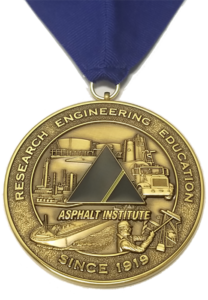
This is the second most prestigious award conferred by the Asphalt Institute. Industry individuals receiving this aware have contributed significantly to the asphalt industry through either sustained technical achievement or through the substantial contribution of leadership. Distinguished Service Award status is typically granted as a career capstone event for the nominee.
The announcement of the names of those selected is typically made at Asphalt Institute annual meeting. As of 2004, the Institute awards each Distinguished Service Award recipient the Asphalt Institute award medallion – a polished brass medallion with engraved AI logo and images of the liquid asphalt supply industry.
Everett Crews joined Ingevity in 1985 after graduating with his Ph.D. from the Georgia Institute of Technology. Over his 38-year career, Everett has led numerous research and development programs to create new emulsifier and additive products for maintenance, rehabilitation, and construction applications. In 2003, Everett organized and led the U.S.…
Read More
Mike started his career in asphalt in 1992 working at the (Owens Corning) Summit Asphalt Laboratory and Pilot facilities. His first big project was generating data for the Asphalt Emissions Factors study led by Dave Trumbore. He also worked heavily in the Loss Prevention development program at Owens Corning which…
Read More
Mike began his career in the asphalt industry in 1975 in Terra Haute, Indiana, working for Bituminous Materials Company, Inc. In 1980, Mike became the vice-president of Southwest Emulsion, where his passion became the commercialization of what-at-the-time were innovative, polymer-modified emulsions. When the French company, Elf Aquitaine purchased Southwest Emulsions,…
Read More
After serving as a Captain in the US Air Force, Ed returned to higher education and graduated with a PhD in Physical Chemistry in 1974 from The State University of New York. He followed his education by working as a research chemist for the Federal Highway Administration (FHWA) in their…
Read More
At the beginning of his career, Bob was keen on the forestry service, which led to him serving as a volunteer firefighter while completing his undergraduate degree. Upon graduation, Bob became a full-time firefighter, the thrill of being an outdoorsman combined with community service drove Bob to stay in this…
Read More
Jim received his BA in geology from St. Joseph’s College in 1960 and his MS in geology from Kansas State University in 1963. Jim’s interest in pavements and asphalt materials began in the Pennsylvania Department of Transportation in the 1970’s where he rose to the positions of State Maintenance and…
Read More
Mike is a chemistry graduate of the Royal Holloway College, London University, who dedicated over 30 years to the technical support of bitumen and its downstream products. Following seven years with Colas Roads, working on polymer modified binder rheology, emulsion development and ISO 9000 Quality Assurance Systems, Mike joined Shell…
Read More
Linda Osborn graduated from Marian College in Indianapolis with the Bachelor of Science in Secondary Education and Teaching in 1977 and furthered her studies at the University of Indianapolis with a Bachelor of Science in Chemistry in 1994. She started her career with the Heritage Research Group in 1984. She…
Read More
Dave earned a Bachelor of Science in Agricultural Economics and Master of Business Administration in Marketing from Oklahoma State University. He started working with Koch Materials Company in 1985 and continued until 1998. He briefly worked at Equilong/Equiva Trading until he joined Asphalt Materials, Inc in Indianapolis, IN. Dave served…
Read More
Corky was raised in Sioux City, Iowa and joined Jebro Incorporated in 1973. His career began at Jebro as a terminal operator and worked his way to President and Owner. He completed the Executive Management Owner President Program at Harvard Business School in 1986. Corky and his wife Marcia now…
Read More
Dan has had a long career in the asphalt business spanning 35 years, following a receipt of a bachelor’s degree from the University of Kansas. Dan dedicated his entire career to Koch Industries and its affiliates. For over three decades Dan served in several positions of increasing responsibilities, which cumulated…
Read More
After earning bachelor’s and master’s degrees in Business Administration from the University of Kansas, Scott began his asphalt career with Koch Industries. Over the course of sixteen years, Scott managed various portions of Koch Industries affiliated business units as General Manager, Eastern Region Leader of Koch Materials Company, Vice President…
Read More
Dave Punnett attended Texas A&T University and began his career in the oil industry with Mid-Region Petroleum followed by positions ranging from sales through management with National Petroleum Sales prior to starting his own company in 1990. Dave and his partner’s company, Frontier Terminal and Trading Company, was later sold…
Read More
Mr. Aimé Xhonneux led Eurobitume as their Director General from September 1, 2012 to September 1, 2018. Aimé shouldered the responsibility of helping to lead the European bitumen industry through the aftermath of the findings of the International Agency for Research on Cancer Monograph 103. His inclusive and calm demeanor…
Read More
Rick Holmgreen has served the asphalt industry for almost 40 years in both academia and private industry. He started his career with the Texas Transportation Institute at Texas A&M University, working with asphalt researchers such as Dallas Little and AI Roll of Honor recipient Dr. Jon Epps. During the Strategic…
Read More
Award of Merit
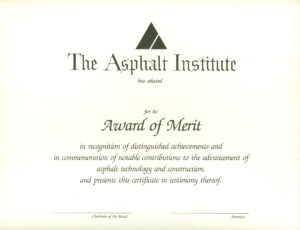
The Award of Merit is the third highest level of recognition conferred by the Asphalt Institute. Approval of this award level is also made by the Executive Committee based on the recommendation of the Personnel Advisory Committee.
Individuals selected for award to the Institute’s Award of Merit have made major contributions to the asphalt industry through either sustained technical achievement or through their contribution of leadership. Award of Merit recipients received a framed scroll and are typically presented the award during an annual meeting of the Board of Directors.
Certificate of Appreciation
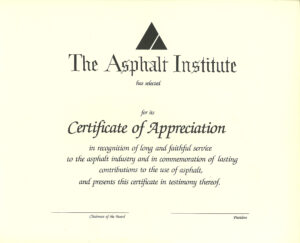
The Asphalt Institute’s Certificate of Appreciation recognized the significant contributions of industry leaders for their efforts to either on a technical matter or for leadership or significant committee or other service. This award was discontinued during the realignment of the awards program in 2002.
Emeritus Recognition
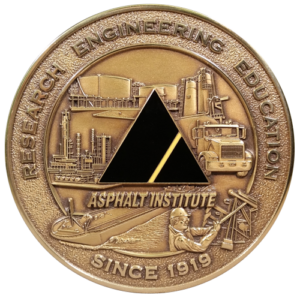
The emeritus title originates from the Latin emereri (meaning: earn one’s discharge by service) and is often used in distinguished academic fields. In bestowing this title, we acknowledge and respect the two parts of the concept:
- Honor for service
- Continuation of belonging
The inspiration for this status is reflected in the inaugural class – each member has been both visionary in his leadership and dedicated in his service. In granting this new status, we confirm that, although they may not be with us on a regular basis, their exemplary service merits their always being an esteemed part of our organization.

